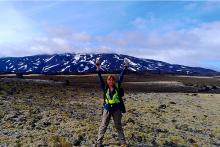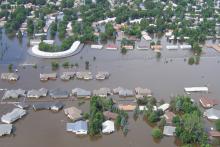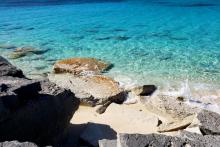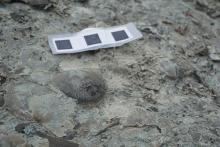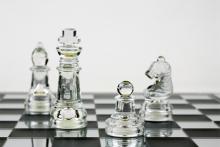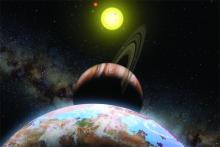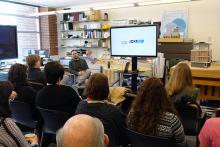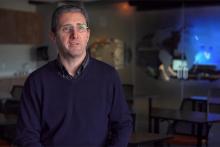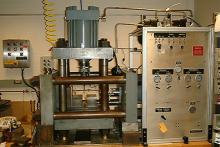As Catherine Hanagan trekked across the rugged landscape of Iceland, lava rock crunching under her feet with each step, one thought constantly ran through her mind.
When Jing Yang, assistant professor of electrical engineering, began looking for practical applications to her machine learning research, partnering with Chris Marone, professor of geosciences, for his work on safe and efficient geothermal exploration and energy production, was a perfect fit.
Ensuring a tolerable climate future, one that reduces warming while considering the costs, requires immediate global action, according to an international team of scientists.
Tropical paradises such as San Salvador Island, Bahamas, are a frequent spring break destination for college students. But for students in a Penn State marine biogeochemistry course, the spot is teeming with research projects related to the physics, chemistry, biology and geology of the coastal region.
Researchers found the recovery period following the second largest extinction on record, some 444 million years ago, had a bigger evolutionary impact than the extinction event itself on brachiopods, shelled, clam-like animals that once dominated the sea floor.
Researchers investigating an interactive program using trade-off diagrams that would lead decision makers in the right direction, allow compromises, but not dictate the results.
To commemorate its 10th anniversary, Penn State's Center for Exoplanets and Habitable Worlds (CEHW) will host a celebration on April 2, with three sessions of talks and panel discussions for technical, academic and public audiences.
Klaus Keller, professor in the Department of Geosciences, and Robert Nicholas, associate research professor with the Earth and Environmental Systems Institute, are among a team that has received funding to develop community-based solutions to river flooding in Pennsylvania.
The College of Earth and Mineral Sciences will co-sponsor a seed grant for the project, "Machine Learning Approaches for Safe Geothermal Exploration” by Jing Yang, assistant professor of electrical engineering in the College of Engineering, and Chris Marone, professor in the Department of Geosciences.


